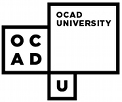IDRC - Celebrating 25 Years
1993 - 2018
Continuing Our Work During COVID-19
Read the letter regarding COVID-19 by IDRC Director, Jutta Treviranus.
Supports for complying with the Accessibility for Ontarians with Disabilities Act (AODA)
How do I make my web site accessible? How do I make my office documents accessible? How do I make information available in alternative formats? Businesses and organizations read our AODA Help.
Inclusion: A Catalyst for Creativity
What happens when artists become involved in looking at access from a creative perspective? Can you make your paintings heard or your music seen? In how many difference senses can your dance be felt? What happens when you paint your poem or sculpt your song? Can you undertake this challenge while still maintaining your focus?
Please Join Wendy Porch, Charles Silverman and Leesa Levinson for a half day workshop that explores how making accessible content can bring added benefits to both artist and audience.
This workshop will also introduce participants to Culturall and Stretch, two multi-partner projects that include The Adaptive Technology Resource Centre (University of Toronto), Ryerson\'s Disability Studies Program and the Canadian Abilities Foundation, to look at the potential for inclusive design to act as a catalyst for innovation and creativity.
Participants will be given the opportunity to try out new and innovative tools developed as part of these projects that will assist in making their art more inclusive of everyone.
| Date | Oct. 26, 2005 |
| Time: |
|
| Revised Location: |
|
Registration is free. For registration information, please email: This email address is being protected from spambots. You need JavaScript enabled to view it.
Accommodating Vision Loss
Date: | Friday, May 27, 2005 |
Location: | Claude T. Bissell Building |
Fee: | $95.00 |
Objectives:
This full-day workshop will provide:
• A well-balanced understanding of common conditions causing low vision and blindness
• A review of the functonal implications of vision loss and how to provide accomodation through academic technology aids
• An in-depth look at how a range of technologies can be implemented, in the home and school environments, to enable students to fully participate in the curriculum
• Live demonstrations and case studies to enhance the presentations
• Handouts that will include resources, demonstration CDs of software
Presenters:
Dr. Raymond Buncic, Opthamologist, Department of Opthamology and Vision Sciences, The Hospital for Sick Children
Low Vision Optometrist. To be confirmed.
Kathy Robinson, Vision Itinerant Teacher, The Simcoe Muskoka Catholic District School Board
Linda Petty, O.T. Reg. (Ont.), Coordinator, Vision Technology Service
Laurie McArthur, O. T. Reg. (Ont.), Services Manager, Adaptive Technology Resource Centre (ATRC)
Lynne Race, O. T. Reg. (Ont.), Vision Technology Service
This workshop is being presented by the Vision Technology Service (VTS), a part of the Adaptive Technology Resource Centre, at the University of Toronto. The VTS has been a Ministry of Health ADP Regional Assessment Centre for sight enhancement and sight substitution devices since 1996. Staff from the VTS will share technology options, outcome measures and case study solutions to illustrate effective accommodation of needs for children with low vision and blindness.
Schedule:
9:00 Introductions
9:30 Dr. Raymond Buncic, Common pediatric eye conditions, treatments and prognosis
~ Break ~
10:45 Low-Tech aids
11:30 Linda Petty, Overview of Vision Technology demonstrations
~ Lunch ~
1:30 Overview of ADP low and high vision technology funding
2:00 Case Study Problem Solving
2:30 Integration with other technologies
~ Break ~
3:00 Application in schools, funding
4:00 Evaluation, wrap up, etc.
Contact Us
Location
Inclusive Design Research Centre
205 Richmond St. W., Second Floor
Toronto, Ontario, Canada
M5V 1V3
Telephone: (416) 977-6000 #3968
Fax:(416) 977-9844
This email address is being protected from spambots. You need JavaScript enabled to view it.




